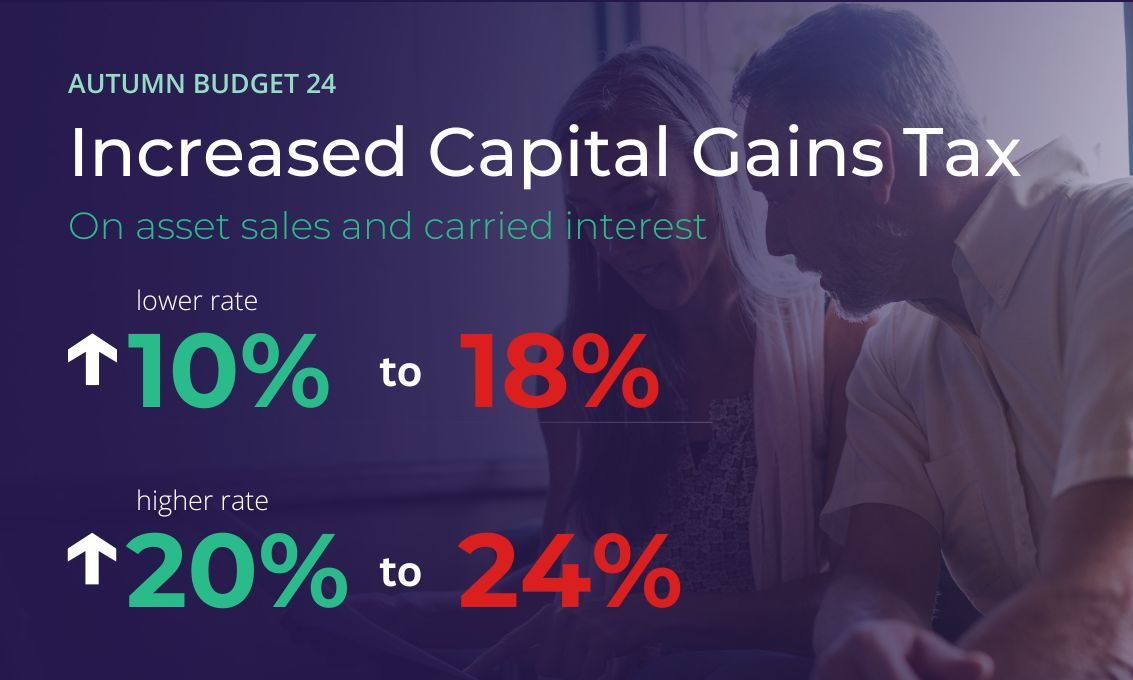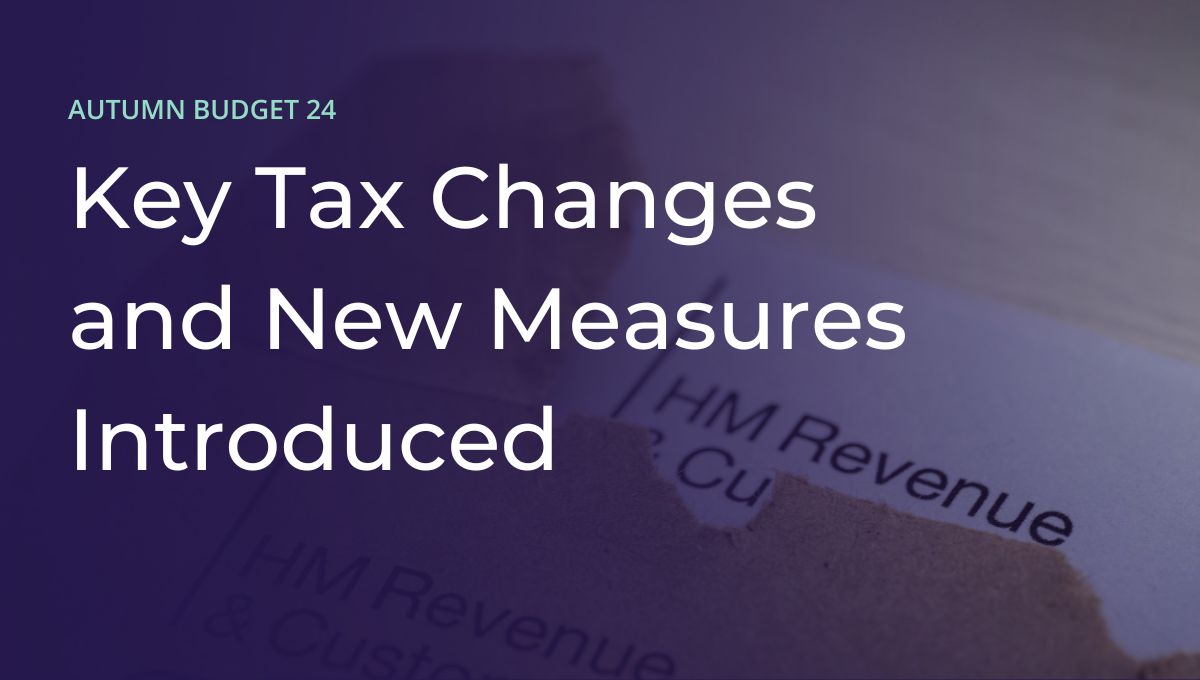
Planning & protection

The Autumn Budget 2024 introduces an extensive range of reforms designed to enhance tax efficiency and economic resilience. From the increase in employer National Insurance Contributions (NICs) to updated Capital Gains and Inheritance Tax policies, these measures have significant implications for both individuals and businesses.
Here’s a closer look at some of the key changes shaping the UK tax landscape.
Starting from 6 April 2025, the employer NICs rate will increase from 13.8% to 15%, with the Secondary Threshold—the point at which employers begin to pay NICs on employees’ earnings—reduced from £9,100 to £5,000. This change, applicable until 6 April 2028, aims to increase tax revenues, after which the threshold will adjust in line with the Consumer Price Index (CPI).
To alleviate the impact on smaller employers, the Employment Allowance will rise from £5,000 to £10,500, with the government removing the £100,000 eligibility threshold, broadening the allowance to include all eligible employers starting in April 2025. Additionally, NICs relief for hiring veterans has been extended for an additional year, providing employer NICs exemptions up to £50,270 for veterans’ first year of civilian employment.
The remittance basis of taxation for non-UK domiciled individuals will be replaced by a residence-based regime from 6 April 2025, allowing foreign income and gains (FIG) to be excluded from UK taxation for the initial four years of residence. For Inheritance Tax (IHT) purposes, the use of offshore trusts to avoid IHT will be phased out, and the rules for Capital Gains Tax (CGT) will allow current and past remittance basis users to rebase foreign assets to their 2017 values upon disposal, under certain conditions.
Autumn Budget 2024Download our full guide to the Autumn Budget 2024 as we explore the spending plans set by the Chancellor, Rachel Reeves. |
 |
The government is also reforming inheritance tax rules:
The IHT nil rate bands will remain frozen at £325,000 and £175,000 (for the residence nil rate band) until 2030, allowing estates to pass on up to £500,000 tax-free, or up to £1 million for estates of surviving spouses or civil partners.
Through these comprehensive reforms, the government aims to create a fairer, more efficient tax system that supports economic stability and enhances public funding.
With over 1,250 local advisers and staff, we’re here to help you address any financial needs arising from the Autumn Budget – from investment advice to retirement planning. Simply provide a few details through our quick and easy online tool, and we’ll match you with the ideal adviser.
Alternatively, click below to download our comprehensive guide to the Autumn Budget.
| Match me to an adviser | Download full guide to the Autumn Budget |
THIS ARTICLE DOES NOT CONSTITUTE TAX OR LEGAL ADVICE AND SHOULD NOT BE RELIED UPON AS SUCH. TAX TREATMENT DEPENDS ON THE INDIVIDUAL CIRCUMSTANCES OF EACH CLIENT AND MAY BE SUBJECT TO CHANGE IN THE FUTURE. FOR GUIDANCE, SEEK PROFESSIONAL ADVICE.
A PENSION IS A LONG-TERM INVESTMENT NOT NORMALLY ACCESSIBLE UNTIL AGE 55 (57 FROM APRIL 2028 UNLESS THE PLAN HAS A PROTECTED PENSION AGE).
THE VALUE OF YOUR INVESTMENTS (AND ANY INCOME FROM THEM) CAN GO DOWN AS WELL AS UP, WHICH WOULD HAVE AN IMPACT ON THE LEVEL OF PENSION BENEFITS AVAILABLE.
YOUR PENSION INCOME COULD ALSO BE AFFECTED BY THE INTEREST RATES AT THE TIME YOU TAKE YOUR BENEFITS.